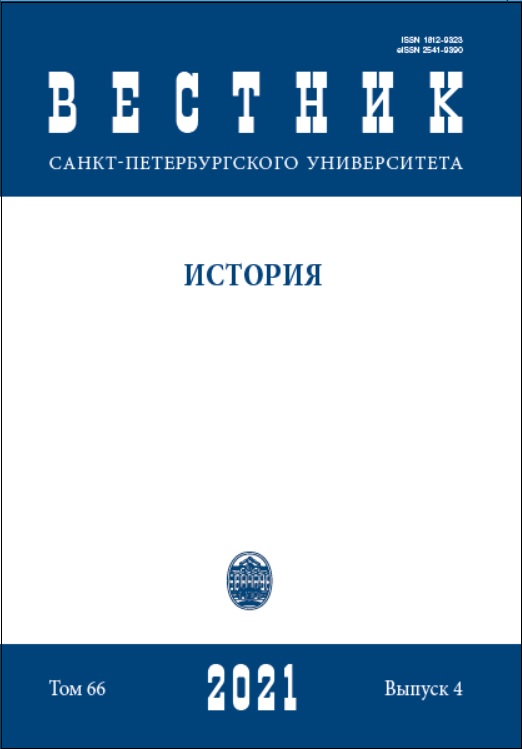Italian Military Behavior in Russia during Second World War
DOI:
https://doi.org/10.21638/spbu02.2021.410Abstract
Italy’s participation in the war against the USSR was dictated by at least three reasons: the common ideology which Mussolini and Hitler shared, Mussolini’s aspiration to revise the European order in the Mediterranean area, to the detriment of France and Great Britain, the goal of ensuring Italy part of Russian row material. The behavior of the Italian troops towards the Soviet war prisoners and the local populations during the occupation from July 1941 to Winter 1942-1943, which is the subject of this contribution, depended also on these reasons. Since 1944 some countries occupied by Italian forces, like the Soviet Union and Yugoslavia, started asking the Italian government for the extradition of Italian alleged war criminals to be judged by local courts. On the grounds of the reports produced by state and local commissions, in 1944 the USSR’s requests were limited to ten alleged criminals, who had been repatriated after the defeat. After initially being intransigent, the USSR started changing its tune and finally Moscow proved more conciliatory in its accusations. This new attitude was connected to negotiations on the handing over of Soviet citizens who had stayed in Italy after the end of the war. This was most likely a contributing factor in persuading the Soviets to ease up their demands on the matter of alleged Italian war criminals. The strategy was successful and, according to the Yalta conference, many Russian and Soviet citizens, who had left the Soviet Union, against their own will were handed over to the Soviet authorities meeting a very uncertain fate.
Keywords:
Great Patriotic War, Italian occupation, Fascist regime, War criminals
Downloads
Downloads
Published
How to Cite
Issue
Section
License
Articles of "Vestnik of Saint Petersburg University. History" are open access distributed under the terms of the License Agreement with Saint Petersburg State University, which permits to the authors unrestricted distribution and self-archiving free of charge.





